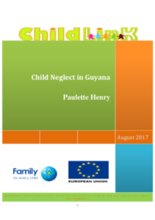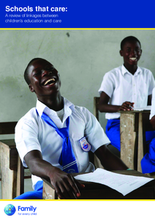Displaying 1 - 10 of 17
In this episode Amanda Griffith of Family for Every Child is joined by representatives of three member organisations who are working to support children's mental health and wellbeing across three continents.
In this How We Care series, Family for Every Child has presented the programming of 3 of its CSO members who have been working on the ground on preventing domestic violence affecting children during COVID-19.
The Adoption of Children (Amendment) Bill has been presented to Guyana's National Assembly of the Twelfth Parliament, according to this article from iNews Guyana.
According to this article from Kaieteur News, a newly installed Adoption Board, which falls under the purview of the Ministry of Human Services and Social Security in Guyana, has begun processing adoption cases that were left unattended for a few years.
This article from the Guyana Chronicle describes the work of Guyana's Child Care and Protection Agency (CCPA) to ensure that children are properly cared for and protected and that their right to a family is honored.
Guyana became the 100th Contracting Party to the Hague Intercountry Adoption Convention on 5 February 2019, according to this news release from the Hague Conference.
Guided by an ideation-to-action theoretical framework for suicide prevention, the goal of the proposed research study is to describe and identify risk and protective factor correlates of youth suicidal behaviour among those at highest risk for suicide – orphans who reside in a low- and middle-income country (LMIC) institutional setting.
This study, commissioned by ChildLinK, critically examines the factors of child neglect by caregivers in Guyana and offers recommendations for key stakeholders across various disciplines.
This report presents the findings from a study that aimed to explore the application in practice of the ‘necessity principle’ from the Guidelines on Alternative Care for Children (UN, 2009) by using three quantitative and three qualitative indicators that provide information about whether children and families have received support to the fullest extent possible before a child ends up outside of parental care arrangements in formal or informal care, or living alone.
This report presents the key findings of a scoping study on the links between education and children’s care. The study involved a literature review in English, French and Spanish; key informant interviews; and consultations with 170 children, carers, teachers and other stakeholders in Guyana, India, Russia and Rwanda.



